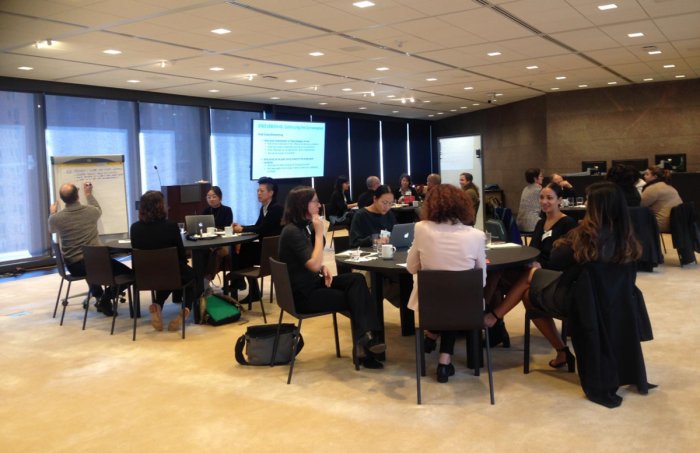
Pratt Center
Building a more racially and socioeconomically diverse field of urban planning

On November 1, 2019, the Pratt Center for Community Development (Pratt Center) and the American Planning Association New York Metro Chapter (APA-NYM) partnered to host a convening of architectural, engineering, and planning firms in the NY metropolitan region to explore how such firms can advance racial and gender equity in the private planning sector.1
To design and lead this convening, Pratt Center hired consultants Daniel Lim—Founder and Principal of Daniel Lim Consulting2; and Giovania Tiarachristie—Founder and Co-Chair of the APA-NYM Diversity Committee. Over the spring and summer 2019, Pratt Center began conversations with several private planning, architecture, and engineering firms to better understand their interests and perspectives on the issue.
Eight firms ultimately attended the convening, which kicked off with a presentation by Tiarachristie of her study: “Elephant in the Planning Room: Overcoming Barriers to Recruitment and Retention of Racial Diversity in the Planning Profession.” In the break-out sessions that followed, participants were divided into groups, mixing companies of various sizes, to share some of the successes and challenges that their firms have faced in the advancement of racial and gender equity, and to brainstorm collective next steps for continuing the conversation.
The convening illustrated that some firms have focused their Diversity, Equity and Inclusion (DEI) efforts predominantly on internal operations, namely on hiring diverse staff. Other firms have focused their DEI efforts predominantly on their external planning practice. The convening served to remind participants that both internal and external orientations are necessary to create systemic transformation in the profession, and highlighted the fact that DEI efforts need to be pursued on an organizational level as well as an industry level.
1 While all players in the planning field, including nonprofits, planning schools, and government bodies, need to address racial and gender equity, for-profit private sector planning firms have been less representative of the populations they serve.
2 The convening was in part catalyzed by the racial equity work that Pratt Center had been doing internally with Daniel Lim Consulting, the product of which was a comprehensive racial justice framework that aims to embed a racial equity lens in the Center’s internal operations and external planning work. One of the insights of this work was the recognition of the need for collective efforts across the planning sector to improve racial and gender representation of planners and more equitable planning practices.